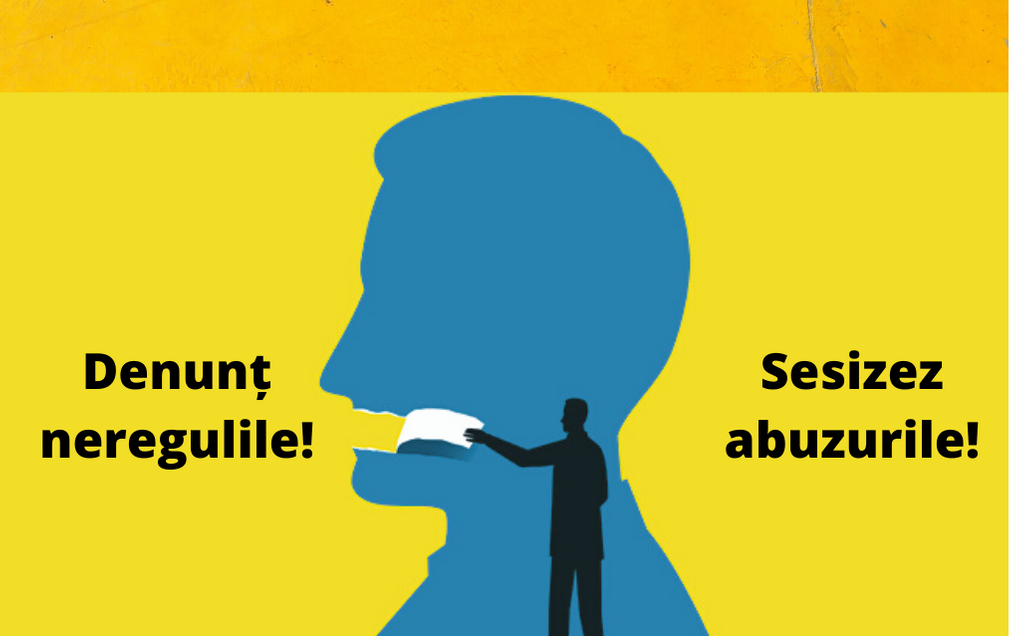back
Whistleblowers and the public interest: ignoring problems can cost us too much

During the state of emergency, some healthcare workers have expressed dissatisfaction with the conditions in which they work during a pandemic.
During the emergency period, some healthcare workers have expressed dissatisfaction with the conditions they work in during the pandemic, posting on social media pictures or videos of the medical equipment they work with. These people are considered whistleblowers because they reveal irregularities in the institutions where they work. Anti-corruption experts urge employees of institutions or organisations to reveal irregularities and illegalities that jeopardise their work and violate the rights of others. In mid-April 2020, in the midst of the coronavirus pandemic, Eugeniu Cebotari, a nurse from the capital, posted a video on social media, demonstrating the poor state of the protective equipment of employees of the National Centre for Emergency Medical Care (CNAMU). He complained about the poor quality of masks, goggles and protective gloves. "They are made of cotton and without much protection. We were advised to wear two masks each if they are thin (...) I am sure the masks are not for COVID-19 patient calls," Eugeniu Cebotari said in the video. Even though he deleted his post a few hours after publication (according to him, he did so because threats of dismissal had been sent to him), the young man said that this action gave courage to his colleagues in the health system to be more insistent and claim their rights as employees. After the irregularities were reported, the issue of protective equipment at the CNAMU was resolved. Other health professionals have also reported irregularities in the system in the context of the pandemic. Dr Renata Zabelinsky, an employee at the Clinical Psychiatric Hospital, complained on social media that the Ministry of Health had let down both doctors and patients in the institution. Ciprian Gherasim, an ENT specialist who previously worked at the Institute of Emergency Medicine, complained in a Facebook post that disposable intubation tubes are being disinfected and used for other people. Shortly afterwards, however, Mihai Ciocanu, director of the Institute of Emergency Medicine, denied this information. Whistleblowers' disclosures are in the public interest These doctors can be considered whistleblowers because they revealed that there was a danger that they, their colleagues and patients could become infected with COVID-19 due to poor quality equipment. According to Lilia Ionita, an expert at the Corruption Prevention and Analysis Centre (CAPC), any disclosure of illegal practices and irregularities within institutions/organisations is valuable: "Information disclosed by whistleblowers helps to prevent possible harm and identify threats or damage to the public interest. Whistleblowing by healthcare employees during a pandemic crisis is very important, and such disclosures are in the public interest of all citizens to have a safe healthcare system that is able to cope with critical situations". The expert also encourages other employees to report wrongdoing, pointing out that the whistleblower law prohibits any retaliation or retaliation against whistleblowers. "It is in our common interest to encourage employees, including those in the health care system, to reveal the system's shortcomings, especially at this critical time. Only in this way will the authorities, as well as civil society and development partners, be able to intervene with facilities, equipment and expertise to ensure the protection of health workers. Ignoring the problems and sweeping them under the carpet can cost us too much. This is why the pressure on the authorities to act promptly and effectively to address the problems raised by whistleblowers and ensure adequate protection must be maintained," says Lilia Ionita. Any retaliation or revenge against whistleblowers is forbidden The whistleblower law came into force in 2018. According to this law, whistleblowers can be employees or former employees (within the last year) of a public or private entity, who denounce in good faith various misconduct or illegalities. Whistleblowers may also be persons who are or have been in the last 12 months trainees or volunteers. Whistleblowers can report cases of corruption, violations of personal rights, national security risks and other irregularities that would affect the public interest. They can report these irregularities in several ways: by writing to their employer or by reporting them to the National Anti-Corruption Centre (NAC). They can also make disclosures through the press or social media, as Eugeniu Cebotari did. Although the law encourages potential whistleblowers to blow the whistle and provides them with protection, they are in no hurry to do so. Angela Starinschi, head of the NAC's public relations department, said very few such complaints had been registered in the past two years. "In 2018, we had three integrity warnings, but after they were examined, they were not confirmed. Last year there was only one warning, and in the first four months of this year - none." According to the law, the Office of the Ombudsman is the institution that can mediate a possible conflict between the whistleblower and the employer, and in some cases can request protection of the whistleblower. Have your fundamental rights and freedoms been violated? Call the toll-free "Hotline" 080080030 from landlines or mobile phones and we will help you to be heard and refer you to the relevant public institutions. Lilia Zaharia, Independent Press Association (API)